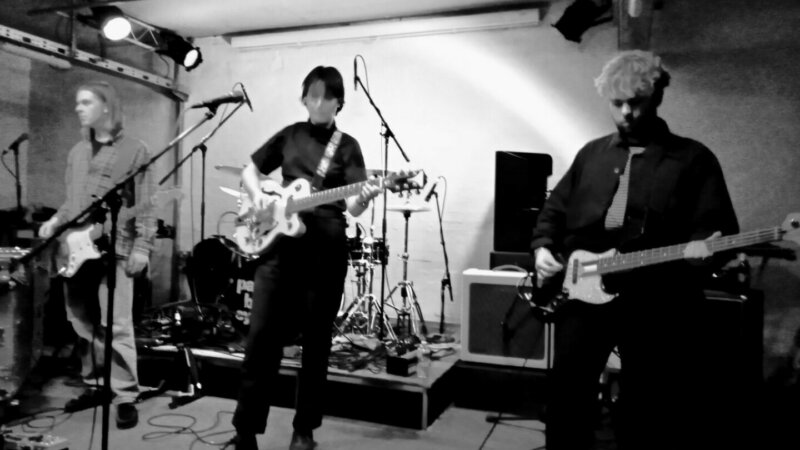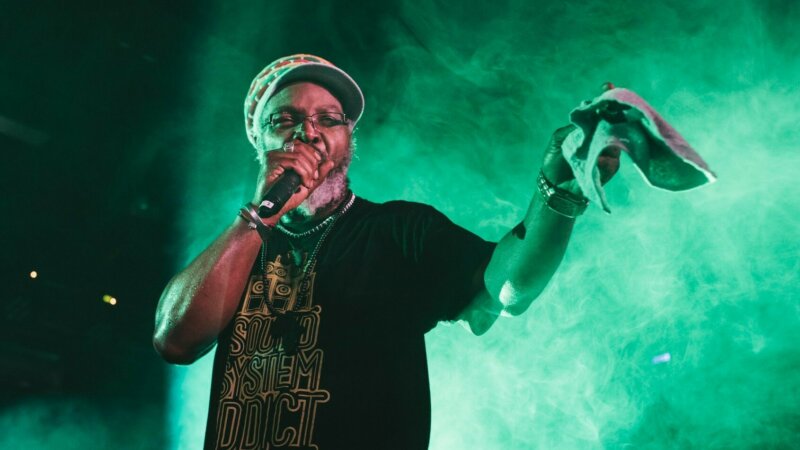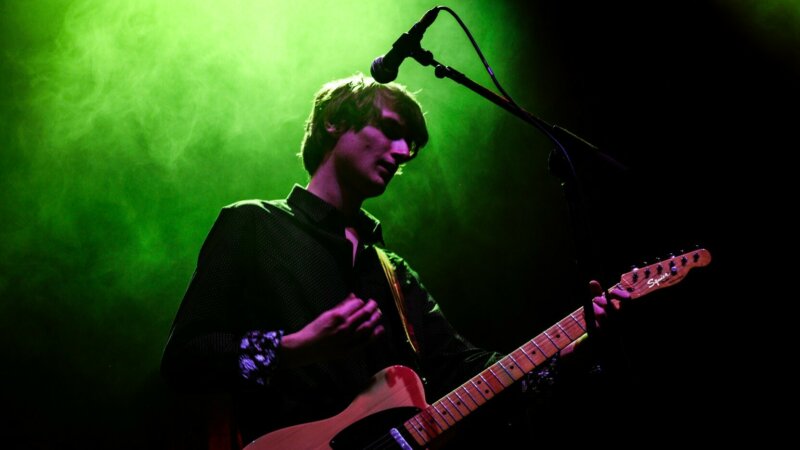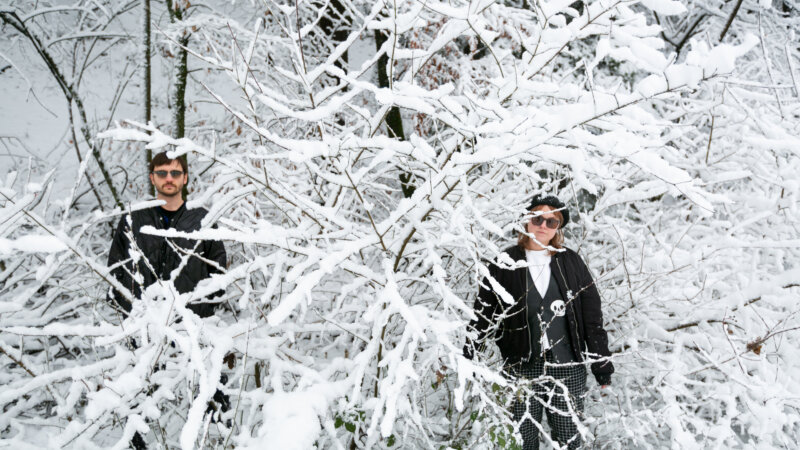Headsup
Algorave.
Incomprehensible to some but celebrated by more than you’d imagine, Algorave promotes music in a live atmosphere curated by live coders who manipulate code generated by algorithms. As improvised as it is structured, the concept could easily be compared to the generative movement, with a plethora of soundscapes ranging from stripped back and minimalist to lush and progressive. In an effort to demystify the movement, I spoke to live coder and Algorave co-founder Alex McLean.
For those who are not entirely familiar with the concept, what exactly is Algorave and how would you define it?
An algorave is where people go and listen to algorithmic dance music, and hopefully dance to it. It's not too prescriptive, and people have made algoraves in countries where the concept of a 'rave' is not too well known. In Mexico City they translated it to ‘algorhumba’. But it's about people enjoying themselves while listening to algorithms in some way. The most common way of making algorave is with live coding, which is where people code the music live, as a kind of jazz improv but with programming languages, and in this case to make something like techno.
How did the collective come about?
For me it started around 2000, talking with my friend Ade Ward about MIDI, and wanting to get people to dance to our code. He'd done a strange course called Media Lab Arts in Plymouth and had all these ideas about generative art. So we started our band Slub and started writing software with some unlikely languages, Perl and RealBasic. Our first attempts were just a bit annoying, but by 2002 we'd managed to get crowds moving to our algorithms in Amsterdam, Paris and Berlin. Since 2004 Dave Griffiths has joined us, a live coder with a background in visual arts and games research, and things have taken a more audio/visual turn.
The name ‘algorave’ came about when I was driving to a gig in Nottingham with a live coding friend, Nick Collins. We tuned in to Rogue FM. DJ Jigsaw was playing some happy hardcore, and that set the scene for our set that night. I think the term came up at that point. Another friend Dan picked up on it a couple of months later and the first algorave was born in a small London warehouse. Loads of friends have been making algorithmic dance music in the background, and it's just given us a focal point.
I'm now a researcher, and at certain academic computer music conferences there is a strong, tacit reaction against beat-driven music, or even music with any repetition at all. So partly algorave is taking a stand against that – saying it's time to move on from just replicating 60s tape music, and start replicating 80s dance music as well.
I should say that algorithmic dance music is not a new concept. Autechre are way ahead here. We're just a loose collective of people putting on algorithmic dance parties around the world.
How did you make the initial departure from computer science to music?
I started off with a career as a computer programmer, but it's making music that took me into research. The PRS Foundation paid the fees for a masters course at Goldsmiths in London, which is full of great people who are excellent musicians and technologists. From there I got into a PhD programme and now a fellowship in Leeds. The live coding scene happened around me, really. It kicked off around 2003 and I helped co-found the TOPLAP movement. It was a natural progression from writing our own software to generate live music, to writing our own software during performance. Ade had made his first live coding system before it had a name.
You are also co-founder of independent label Chordpunch and currently have a good number of side projects on the go. How do you fit it all in?
It's got a bit much really. Since moving to Sheffield things have exploded. I started so many fantastic collaborations last year – a duo with free improv percussionist Paul Hession, another with choreographer and dancer Kate Sicchio, live coding an avatar vocalist with the roots band Rafiki Jazz, live code and performance painting with Ayse Thornett and some live knitting to accompany Susanne Palzer's live art, while also keeping up with Slub. But I think I need to do all this stuff to feed into my research ideas, and vice-versa.
Would you say Sheffield’s musical heritage has had an impact on your music?
For sure. Another great collaboration is making spam-pop music with Jake Harries of Chakk and FON studios (and now Access Space), who has a lot of stories from the post punk days. I spent many years listening to Warp artists, although I don't get out much and am yet to properly taste the underground techno scene here. One day.
What would you say was most important aspects of your shows? There's certainly a visual aspect but how instrumental is that within the process?
We project the code we're editing so people can see it. Not projecting the code doesn't feel like an option, because the code is the material we're working with. Playing live on stage while hiding your instrument just feels pompous. I just don't buy into the acousmatic ideal of sound devoid of movement. On the other hand it can feel like a distraction. People naturally stare at screens and look like a row of zombies. So I feel bad about this. I guess the point of a rave is that the music producer is kind of anonymous and in the background. Things operate outside normal commercial frames. It's more about sharing live experience.
Ideally I'd say the focal point of an algorave should be other people, but then what's the point in foregrounding algorithms in the first place? I'm not sure. Basically, ‘algorave’ is a stupid name for an idea that doesn't make sense, but for some reason it has caught some people's imagination. I guess there'll be an algorave backlash soon though and we'll be able to do something else instead.
Who or what would you say most inspires the music you create? Do you have any plans to release music?
I'm rubbish at recording music. I really enjoy improvising things for the moment and rarely think in terms of tracks. Slub have a lot of live recordings and edits on their website though, and have released things online here and there. I also made a two-track single called ‘Broken’ during a residency in Barcelona, which is a free download on ChordPunch.
What does the future hold for Algorave?
Difficult to tell. Anyone is free to do an algorave, and some proper promoters are putting them on in Germany, Amsterdam and Barcelona. So if that goes down well it could turn into a mass movement, I guess.
What's been really exciting is seeing live coding communities appear. The scene in Mexico is really inspiring. They've just been teaching each other how to do live coding and ended up with a unique culture of practice. Last month Alexandra Cardenas gave a live coding workshop in Chennai in India, and 110 people turned up and were really keen. I can't wait to see what they come up with. I've been doing live coding workshops myself, and finding it's possible to get a room full of non-programmers live coding music together within an hour or so. So I guess the answer is, more people learning to make things with code to create a live experience for themselves and their friends, rather than just trying to make Flappy Bird apps.
Algorave
Chordpunch.com
Slub )





